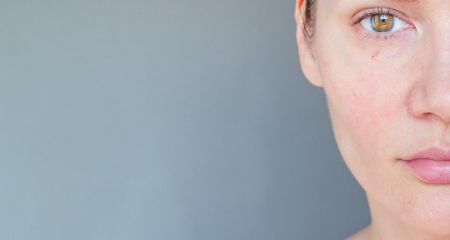
Experiencing ongoing facial redness, flushing, visible blood vessels, or acne-like breakouts? You may be dealing with rosacea. The skilled dermatologists at Northstar Dermatology specialize in diagnosing and treating rosacea. They’ll provide you with a tailored treatment plan designed to calm active symptoms and reduce future flare-ups.
The key to managing rosacea is to minimize exposure to the identified triggers as much as possible. However, when this isn’t sufficient, several treatment options can be considered:
Gentle Skincare and Sun Protection
Implementing a mild cleanser, a soothing moisturizer, and a broad-spectrum sunscreen can help calm your skin and enhance tolerance to topical treatments. It’s crucial to select a mineral sunscreen (which is generally less irritating for those with rosacea) with an SPF of 30 or higher. Be sure to reapply every two hours and protect your face with wide-brimmed hats and sunglasses.
Topical Medications
Numerous topical treatments (creams, gels, and lotions) target the symptoms of rosacea. Anti-inflammatory agents like azelaic acid and benzoyl peroxide can address acne-like breakouts. Additionally, metronidazole cream or gel (Metrocream, Metrogel) and ivermectin cream (Soolantra) are effective in treating acne-like lesions and redness. For persistent flushing, oxymetazoline (Rhofade) or brimonidine (Mirvaso) creams can provide relief. Regular use of sulfur-containing washes may also help diminish redness. These medications can also significantly alleviate the burning, stinging, and other discomforts associated with rosacea.
Oral Medications
In some cases, low-dose tetracyclines such as minocycline and doxycycline are prescribed to manage more severe inflammation, which can help prevent skin thickening. For particularly severe breakouts and inflammation, isotretinoin (Accutane) may be prescribed.
Laser and Surgical Treatments
Laser therapy can be highly effective in eliminating visible blood vessels, reducing facial redness, and addressing skin thickening. In cases of exceptionally thick skin, procedures such as electrosurgery (hot loop) or radiofrequency treatments may be utilized.
